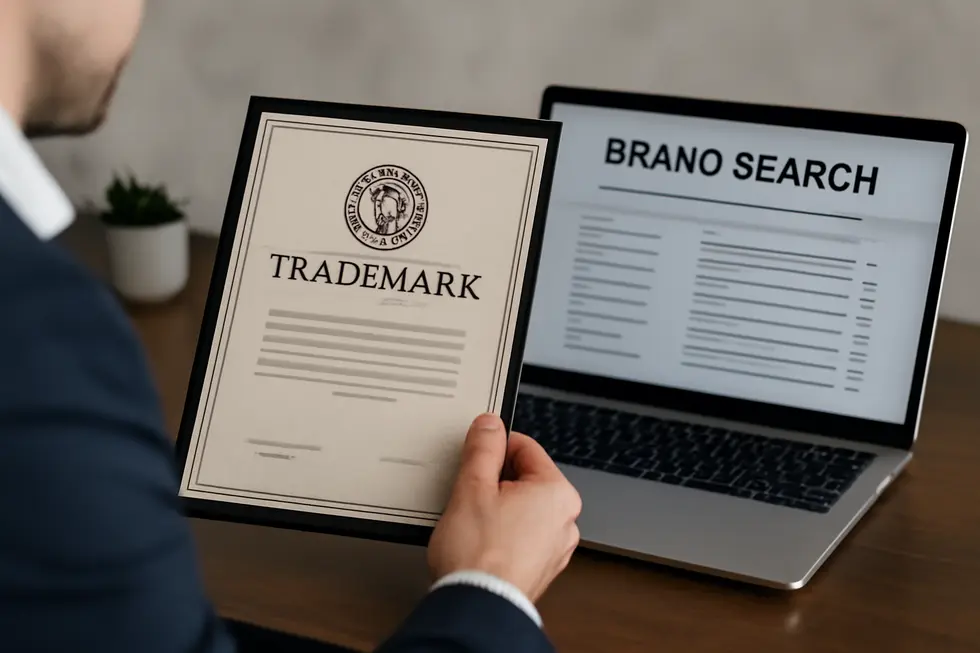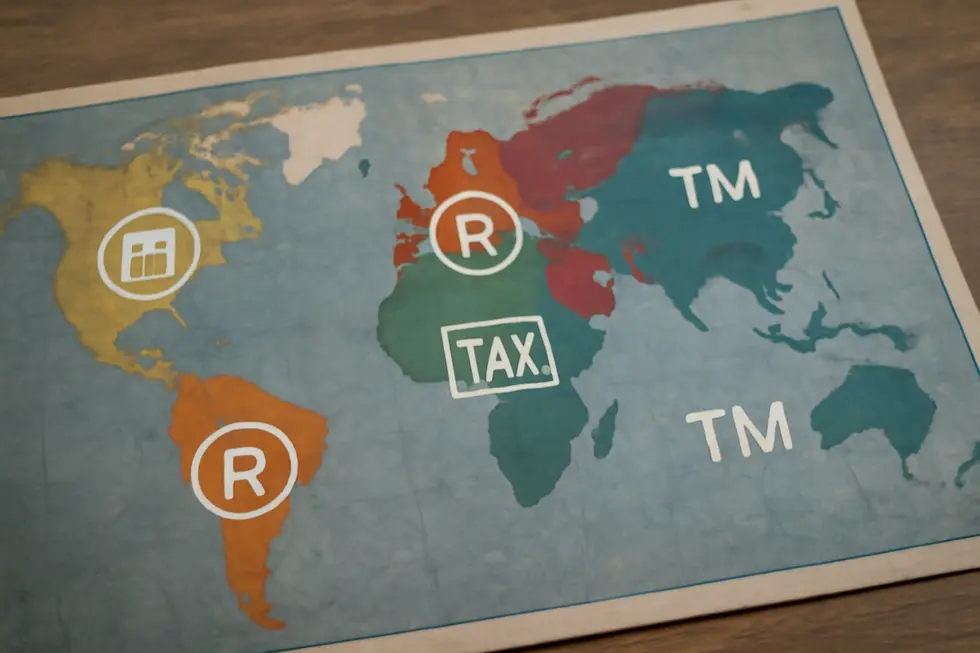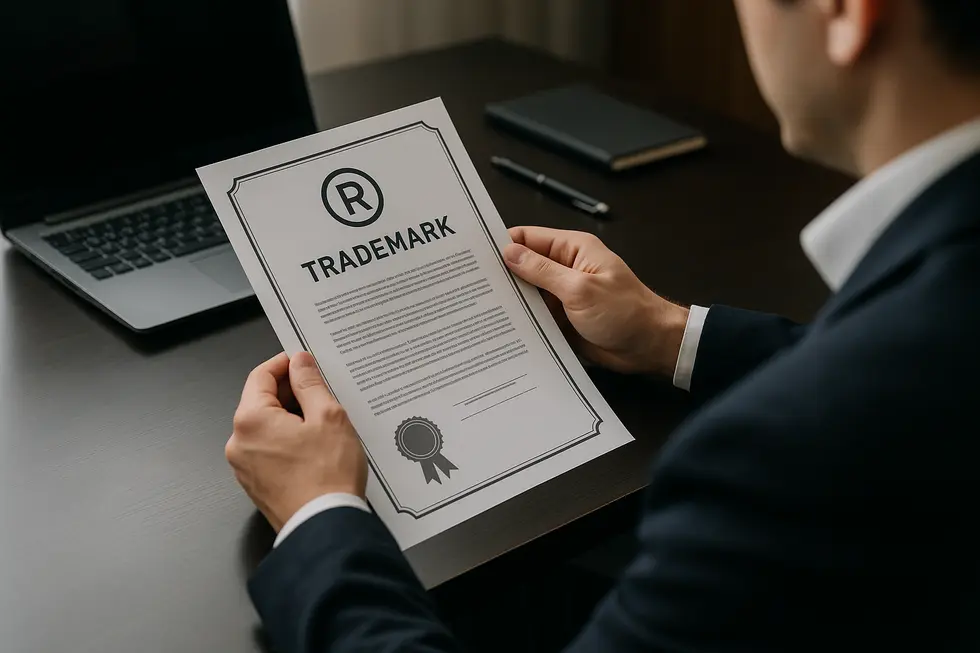Introduction
Selecting a business name is a crucial step in establishing your brand identity. However, many business owners wonder whether they can use a name that’s already in use by another company. Understanding the rules around identical business names is essential to avoid legal hurdles, consumer confusion, and wasted effort. This article examines why jurisdictions generally prevent duplicate business names, explains how trademark laws influence name usage beyond registration, and highlights important regional variations you must consider. Together, these insights provide a clear roadmap for protecting your brand and making informed naming decisions.
Tables of Contents
Chapter 1: Understanding why you generally cannot have the same business name as someone else within the same jurisdiction
- How Trade Name Registration Rules Shape Unique Business Identities Within Jurisdictions
- How Trademark and Intellectual Property Laws Enforce Unique Business Names Locally
- Why Identical Business Names Are Restricted: Safeguarding Consumers, Brand Identity, and Fair Market Competition
Chapter 2: How Trademark Laws Shape the Possibility of Sharing a Business Name
- Navigating Consumer Confusion and Industry Boundaries in Trademark Law
- Navigating Geographic and Jurisdictional Boundaries in Trademark Protection for Business Names
- Why Registering a Business Name Isn’t Enough: The Crucial Role of Trademark Protection
Chapter 3: Variations in Rules from Different Regions on Having the Same Business Name as Someone Else
- Navigating Regional Legal Complexities: How Jurisdictions Differ in Addressing Identical Business Names
- Navigating Business Name Registration and Trademark Protection: Regional Differences in Exclusivity and Enforcement
- Navigating Geographic Jurisdiction and Trademark Territory in Business Name Conflicts
Chapter 1: Understanding why you generally cannot have the same business name as someone else within the same jurisdiction

1. How Trade Name Registration Rules Shape Unique Business Identities Within Jurisdictions
Trade name registration rules and trademark laws form the core reasons why identical business names cannot coexist within the same jurisdiction. These regulations are designed to protect consumers from confusion and shield companies’ valuable intellectual property. When two businesses in the same geographic area use identical or very similar names, it risks misleading customers about the source or affiliation of products and services. This not only dilutes the original brand’s identity but also creates unfair competition and legal disputes.
Jurisdictions enforce these protections through a rigorous name registration process. Authorities, such as state secretaries or corporate registrars, typically reject any business name that is already in use or that so closely resembles an existing name that it could cause confusion. For example, certain regulations, like Iowa’s pesticide brand naming rules, strictly prevent registrants from securing names that might mislead consumers regarding product origin. Some states may even require businesses to file a different or “forced” trade name if their desired name conflicts with a registered entity.
Businesses must conduct careful searches of existing records before submitting name applications. This process ensures each registered enterprise has a unique legal identifier, which is vital for clear licensing, tax compliance, and enforcement. While registering a trade name locally or statewide generally provides exclusivity within that jurisdiction, the international landscape complicates matters. Varying intellectual property laws across countries affect how names and trademarks are recognized and enforced globally.
Filing a “doing business as” (DBA) name is often necessary when operating under a name different from the registered legal entity. These filings come with jurisdiction-specific fees and renewal requirements, designed to maintain order and transparency in public records.
Ultimately, the strict trade name registration framework prevents identical business names from coexisting within the same jurisdiction, upholding clarity, trust, and fair competition. For deeper insight into protecting your business identity, understanding trademark protection is essential, as explained in this guide to legally protected brand trademarks.
2. How Trademark and Intellectual Property Laws Enforce Unique Business Names Locally
The restriction on having the same business name as another within the same jurisdiction stems primarily from trademark and intellectual property (IP) laws designed to avoid consumer confusion and protect brand identity. When two businesses operate under identical or closely similar names in the same legal area, consumers may mistakenly associate one with the other, potentially harming reputations and causing unfair market competition.
Trademark law assigns rights to names that serve as identifiers of a business’s goods or services. If a proposed business name conflicts with an existing trademark or trade name, trademark infringement issues arise. These conflicts often lead to legal challenges because trademarks help consumers distinguish reliable sources and avoid deception. Since IP protections are territorial, each jurisdiction enforces its own rules and maintains registries to prevent duplicate or confusingly similar names within its borders.
Beyond trademarks, many jurisdictions require businesses to file “Doing Business As” (DBA) or trade name registrations, which further restrict identical names within the same locale. Generic or overly descriptive names often cannot receive trademark protection, limiting their exclusivity and reducing the likelihood of infringement claims. Additionally, laws impose restrictions on using geographic terms or protected regional names to prevent misleading associations about a product’s origin.
These layers of protection ensure a fair marketplace, helping businesses build unique identities while guarding consumers against confusion. To avoid legal disputes and establish exclusive rights, business owners must conduct thorough name searches and comply with local registration rules that are grounded in these IP principles.
For a comprehensive explanation of how regional intellectual property rights apply to business names, see Attorney Aaron Hall’s detailed article on business names and regional IP rights.
3. Why Identical Business Names Are Restricted: Safeguarding Consumers, Brand Identity, and Fair Market Competition
Business name restrictions within the same jurisdiction exist primarily to protect consumers, preserve unique brand identities, and uphold fair competition. When businesses share identical or confusingly similar names, customers risk being misled about the origin or quality of products and services. This confusion undermines the value of informed choices, since business names often serve as trust signals and markers of reputation. Consequently, laws and trademark regulations impose limits on name duplication to ensure clear distinctions in the marketplace.
Beyond consumer protection, a business name embodies a company’s market identity and goodwill. Allowing multiple entities to operate under the same or a similar name erodes this distinctiveness and damages the original business’s reputation and long-term brand equity. Intellectual property frameworks grant exclusive rights over certain names or marks to maintain this identity, fostering confidence among customers and investors alike.
Fair competition is further preserved by prohibiting name duplication. This prevents one company from unfairly benefiting from another’s established customer base or hard-earned reputation. At the same time, legal systems carefully balance these protections with the need to avoid monopolizing generic or descriptive terms essential for competitors’ communication. Courts and registration authorities evaluate potential confusion based on factors like consumer awareness and industry context to maintain healthy market dynamics.
The underlying legal structures—ranging from trademark laws such as the Lanham Act in the U.S. to local business name registration requirements—work collectively to support these principles. If a dispute arises, enforcement options include refusal of registration and legal actions against infringers. These mechanisms ensure that business names serve their core purposes without causing consumer harm or distorting competition.
For a deeper look at how trademark protection reinforces business name rights and market integrity, see this detailed guide on the importance of trademarking your business name.
A comprehensive analysis by attorney Aaron Hall provides further insight into regional intellectual property rights and trademark conflicts, emphasizing why jurisdictions restrict identical business names to safeguard all stakeholders.
Chapter 2: How Trademark Laws Shape the Possibility of Sharing a Business Name

1. Navigating Consumer Confusion and Industry Boundaries in Trademark Law
Trademark laws play a pivotal role in determining whether two businesses can share the same or similar names, primarily by focusing on the risk of consumer confusion. The legal standard known as the “likelihood of confusion” evaluates if consumers might mistakenly believe that goods or services come from a single source due to the similarity of the names involved. This principle protects both consumers and established brands from misleading associations.
Crucially, trademark protection hinges on the industries or classes in which businesses operate. A trademark registered for one class of goods or services limits others from using identical or confusingly similar names within the same or closely related fields. For example, two businesses might legally use the same name if one sells clothing and the other provides software services, as long as their markets do not overlap enough to cause confusion.
However, when businesses operate in overlapping or related industries, trademark law usually forbids the use of identical or deceptively similar names. This restriction helps maintain clear brand identities and prevents dilution of goodwill, which is the value built through consumer recognition and trust.
Regional differences complicate matters further. A business name that’s permitted in one jurisdiction might infringe a trademark in another, especially if the trademark registration spans that territory. Thus, companies must conduct comprehensive trademark searches and seek expert advice when planning to use a name broadly.
Registering a trademark offers stronger, enforceable rights beyond mere business name registration, establishing exclusive use and legal grounds to prevent infringing uses. Understanding these nuances and the interplay between industry scope, geographic reach, and consumer perception is essential for protecting your business identity.
For those seeking to protect their brand and avoid conflicts, consulting with an intellectual property expert and conducting detailed trademark searches is crucial. More insights on securing your business identity can be found in this article about the importance of brand trademark protection.
2. Navigating Geographic and Jurisdictional Boundaries in Trademark Protection for Business Names
Trademark protection fundamentally depends on geography. Rights granted through trademark laws apply strictly within the jurisdiction where the mark is registered or recognized by use. This territorial nature means two businesses can legally share the same or similar names if they operate in separate regions without overlapping consumer bases. For instance, a federally registered trademark in one country offers no automatic protection beyond that country’s borders.
Common law trademarks, which arise from actual use rather than registration, tend to have even more limited reach, generally confined to local areas where consumers are familiar with the business. Registered trademarks, however, usually provide broader exclusive rights throughout an entire jurisdiction, such as nationwide protection in the US.
Because trademark laws and enforcement mechanisms vary internationally, a business name protected in one country might be entirely available for registration in another. Yet, this coexistence hinges on preventing consumer confusion. If companies with the same name expand into overlapping markets, the risk of trademark infringement disputes increases significantly.
Moreover, the use of geographic terms within business names adds complexity. Many jurisdictions restrict names that could mislead consumers about origin or affiliation, thereby limiting the use of certain regional or place-based terms.
For businesses aiming to grow beyond local borders, it’s crucial to conduct comprehensive trademark clearance searches across relevant territories and to register trademarks in jurisdictions where protection is desired. Consulting intellectual property experts familiar with local laws ensures risks are minimized and rights are secured effectively.
Understanding these geographic and jurisdictional dimensions clarifies why identical business names can coexist legally yet still lead to conflict if market boundaries blur. To fully safeguard your brand identity, combining company registration with strategic trademark protection across territories is essential.
For further insight on managing regional intellectual property rights, see: https://aaronhall.com/business-names-that-violate-regional-ip-rights/
3. Why Registering a Business Name Isn’t Enough: The Crucial Role of Trademark Protection
When deciding if you can have the same business name as someone else, it is vital to understand the fundamental difference between business registration and trademark registration. Registering a business name with a state or local authority primarily serves to identify your company for legal and tax purposes within that jurisdiction. This process does not grant you exclusive rights over that name outside the registering state. Consequently, two businesses in different states may share identical or similar names without violating registration rules.
In contrast, trademark registration offers a far stronger and more comprehensive layer of protection. By federally registering a trademark, you secure exclusive nationwide rights to the business name—or logo or slogan—linked to particular goods or services. This legal monopoly enables trademark owners to prevent others from using confusingly similar marks that could mislead consumers about the source of products or services. Trademark protection thus extends well beyond the boundaries of business registration and provides enforceable remedies in federal courts.
Because of this distinction, even if you successfully register your business name at the state level, you may still face legal challenges if another company holds a trademark on the same or a confusingly similar name within your industry. Trademark law is designed to prevent consumer confusion and unfair competition, so infringement claims can arise regardless of separate state registrations. This underscores the importance of conducting thorough trademark searches before finalizing a business name.
Moreover, trademarks protect the brand identity at a broader commercial scale, securing your ability to build customer recognition without interference. Without trademark registration, your business name protection remains limited and vulnerable to duplication elsewhere. For complete brand security, you must complement your local business registration with federal trademark registration to enforce exclusive rights effectively.
For more on safeguarding your brand identity through trademarks, see this detailed guide on how trademark prevents others from using your business name.
Chapter 3: Variations in Rules from Different Regions on Having the Same Business Name as Someone Else

1. Navigating Regional Legal Complexities: How Jurisdictions Differ in Addressing Identical Business Names
The landscape governing the use of identical business names differs markedly across jurisdictions, shaped by varied legal frameworks and administrative procedures. At the core of these differences lies the distinction between business name registration and trademark protection. Registering a business or LLC name with a state or regional authority grants the right to operate under that name locally, but it does not necessarily secure exclusive rights to it. Trademark registration, which is distinct from business registration, offers broader protection by granting exclusive rights nationally or internationally, depending on the trademark’s coverage.
States and countries apply diverse standards when assessing name availability. Some jurisdictions enforce strict prohibitions against registering names that are identical or confusingly similar to existing ones if such similarity may mislead consumers or dilute brand identity. This extends especially to names protected under regional trademark laws or to those incorporating restricted geographic terms that could imply false origins. Enforcement mechanisms also vary widely; while some adopt rigorous statutory enforcement, others rely on common law principles that consider actual use and consumer recognition.
Furthermore, the administrative processes involved in registering or changing business names differ in complexity. Rules may require periodic renewals, detailed filings such as Certificates of Amendment, and even public notices. For example, certain U.S. states allow multiple LLCs with the same name but lack trademark enforcement, which can lead to conflicts when businesses expand their market reach or establish an online presence.
Understanding these legal and administrative variations is critical for businesses seeking to protect their identity while avoiding infringement risks. Thorough regional name searches and engaging intellectual property experts can help navigate these complexities effectively. For businesses aiming for comprehensive protection beyond local registration, trademark registration is a necessary step to secure exclusive rights and defend against confusingly similar brand use across jurisdictional boundaries.
For deeper insight into securing your brand identity, see detailed guidance on legally protected brand trademarks.
Source: Iowa Code r. 21-45.12 – Brand Names Duplication
2. Navigating Business Name Registration and Trademark Protection: Regional Differences in Exclusivity and Enforcement
Business name registration and trademark protection serve distinct but complementary roles across jurisdictions, shaping the legal landscape for businesses seeking name exclusivity. While registering a business name typically occurs at a regional or state level and ensures administrative recognition within that area, it does not convey exclusive rights beyond the registration jurisdiction. For example, in Australia, obtaining business name approval from ASIC confirms that the name is not already registered locally but offers no protection against infringement by a trademark owner. The business name registration is merely an administrative filter designed to minimize confusion in the same registry, not to guarantee nationwide or industry-wide exclusivity.
In contrast, trademark protection offers broader and more robust legal exclusivity, often recognized nationally or regionally, depending on the trademark system. A registered trademark grants the right to prevent others from using identical or confusingly similar marks in connection with related goods or services, thus protecting brand identity and consumer trust on a larger scale. This exclusivity can be enforced through legal actions that stop unauthorized use and address infringement consequences. For instance, Canadian trademark law confers nationwide rights, giving trademark holders a strong presumption of ownership and enforcement power against conflicting marks across all provinces.
These differences mean that it is sometimes possible for two entities to register the same or very similar business names in different areas without immediate conflict, provided no trademark infringement occurs. However, trademark law aims to prevent confusion by restricting similar marks in the same market or industry. Even where trademarks are recognized internationally, regional variances can impact the scope and effectiveness of enforcement.
To mitigate risks, businesses should conduct comprehensive trademark searches and consider trademark registration alongside business name registration. This dual approach maximizes protection by combining regional registration with enforceable rights, guarding against others capitalizing on the same name within or beyond local boundaries. For more insights on protecting a brand through trademarks and business name strategies, see this resource on legally protected brand trademarks.
External Reference: LegalZoom’s detailed explanation of the distinction between trademark protection and business name registration clarifies this critical legal difference (https://www.legalzoom.com/articles/can-i-trademark-my-business-name).
3. Navigating Geographic Jurisdiction and Trademark Territory in Business Name Conflicts
The rules governing whether you can use the same business name as another depend heavily on geographic and jurisdictional nuances, blending local registration requirements with territorial trademark protections. Within many countries, including the multiple states in the U.S., business name uniqueness is strictly enforced at the local level to prevent consumer confusion. This means two businesses cannot register identical names within the same state or country when their markets intersect. Yet, this restriction often does not apply across different jurisdictions. For instance, a business name registered in one U.S. state may be legally used in another, as state registrations mainly regulate tax and corporate identification, not national brand exclusivity.
Trademark laws operate differently, offering protection on a territorial basis that usually does not extend beyond the borders where the trademark is registered. For businesses seeking broader protection, the Madrid Protocol offers a streamlined system to register trademarks across multiple countries with one application, though each country’s acceptance and enforcement vary significantly. Without a trademark, a business name can be duplicated in other regions or countries, possibly leading to confusion or disputes when companies expand internationally.
Given these factors, entrepreneurs expanding their operations must conduct thorough name availability searches in each target jurisdiction. Local business registries provide various tools, some online, to check name availability, but trademark databases must also be consulted to avoid infringing on existing rights. Conflicts can necessitate negotiating name modifications or legal counsel to navigate cross-border trademark disputes.
Ultimately, the interplay of state, national, and international rules creates a complex landscape. To protect your business identity effectively across borders, combining local company registration with proper trademark registration is critical. For a deeper understanding of securing your brand through trademarks, see this detailed guide on legally protected brand trademarks.
For more information on global trademark registration procedures, visit the World Intellectual Property Organization’s official page on the Madrid Protocol: https://www.wipo.int/madrid/en/
Final thoughts
Navigating whether you can have the same business name as someone else requires understanding multiple legal layers. Jurisdictional business name registration rules largely prevent duplicate or confusingly similar names within the same territory to protect existing businesses and consumers. Yet, these rules alone do not guarantee complete brand protection, especially across broader regions or industries. Trademark laws provide the necessary shield by granting exclusive commercial rights that can transcend state or national borders within specific classes of goods and services. Furthermore, regional variations in registration and trademark systems add complexity and demand localized knowledge.
By grasping these essential distinctions — between business registration policies, trademark protections, and regional regulations — business owners can make informed decisions that safeguard their brand identity and minimize legal risks. Combining business name registration with strategic trademark registration is the strongest approach to ensure your business name remains uniquely yours and safe from unauthorized use or costly disputes.
Get your trademark today! Thousands have protected their brand by filing a trademark. What are you waiting for? Start your trademark application now!
About us
We are the globe’s top website for registering trademarks and safeguarding your brand, name, logo, or slogan. Our platform offers streamlined, expert-guided trademark registration services to help business owners secure exclusive rights quickly and confidently, protecting what matters most to your business identity.







